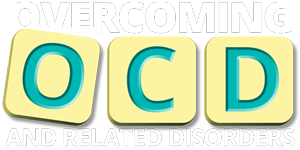Rumination–Friend or Fraud?
3 min read
The human brain is pretty remarkable. We are the only creature blessed with the ability to think with language which is impressive in so many ways: it allows us to build relationships, to love, to have deep and meaningful interactions with others, to have a sense of humour and to better ourselves and the planet. In fact really, we are the only species to have changed the world in any significant way.
That said, this blessing can also be a curse. Our brains, with their incredible capacity for thought, can easily shift into overdrive. When this happens, rumination—the endless cycling of negative thoughts—can occur.
What is Rumination?
The longer I have worked as a therapist the more I am seeing that rumination has a lot to answer for. If truth be told it can catch me off guard from time to time too. So what is rumination? and why does it trick us into thinking it is a useful thing to be doing?
Rumination is where thinking shifts from being practical and useful, to going round in circles, not really achieving anything. For example: dwelling on past mistakes, worrying about the future, trying to anticipate what someone may be thinking of us, comparing ourselves to others or going back and forth trying to make a perfect decision.
Why Does Rumination Deceive Us?
Rumination masquerades as a friend. It is problematic because, it gives the illusion of being helpful when it is in fact not, with our brains telling us things such as:
· ‘The more I think the more I can be certain’.
· ‘If I keep going over this situation, I can make sure I understand what I did wrong’.
· ‘If I continue to put thought into this it shows I am a diligent person and that I care’.
· ‘I need to keep thinking about this so as not to let myself off the hook’.
· ‘If I keep going over this I may motivate myself to be a better version of myself.’
However, despite this convincing narrative that rumination is helpful, thinking too much can take us away from the present moment, it can increase feelings of depression, anxiety, guilt and shame, which in turn can prevent us from living according to our values. Rumination doesn’t give us certainty, in fact it can often increase feelings of confusion and doubt. It prevents us from connecting with the things that matter and can often convince us that negative feelings about ourselves are true when they are not.
How to Break Free from Rumination
There is however some good news! Rumination is a behaviour that you have control over and here is how.
· The first step in getting on top of rumination is recognising it and labelling it.
· The second is questioning its purpose – is this really helping me? My bet would be the answer is no. If however, it feels like the topic of rumination is something that does require a bit of thought, it is okay to take time to think about practical steps you want to take, but limit this, so as not to let it eat into your whole day. Once the practical steps have been planned out, give yourself permission to disengage with thinking about it.
· The third step is redirect your focus. Shift your attention to something meaningful. Where would be a valuable place to direct my attention instead? For example, to doing something I enjoy, conversation with friends, being in nature. Essentially anything aside from staying in your head.
Take Back Your Mind
So next time you notice yourself caught up in a cycle of thoughts, feel free to politely – or not so politely, send this fraudster on its way. It is not your friend!

